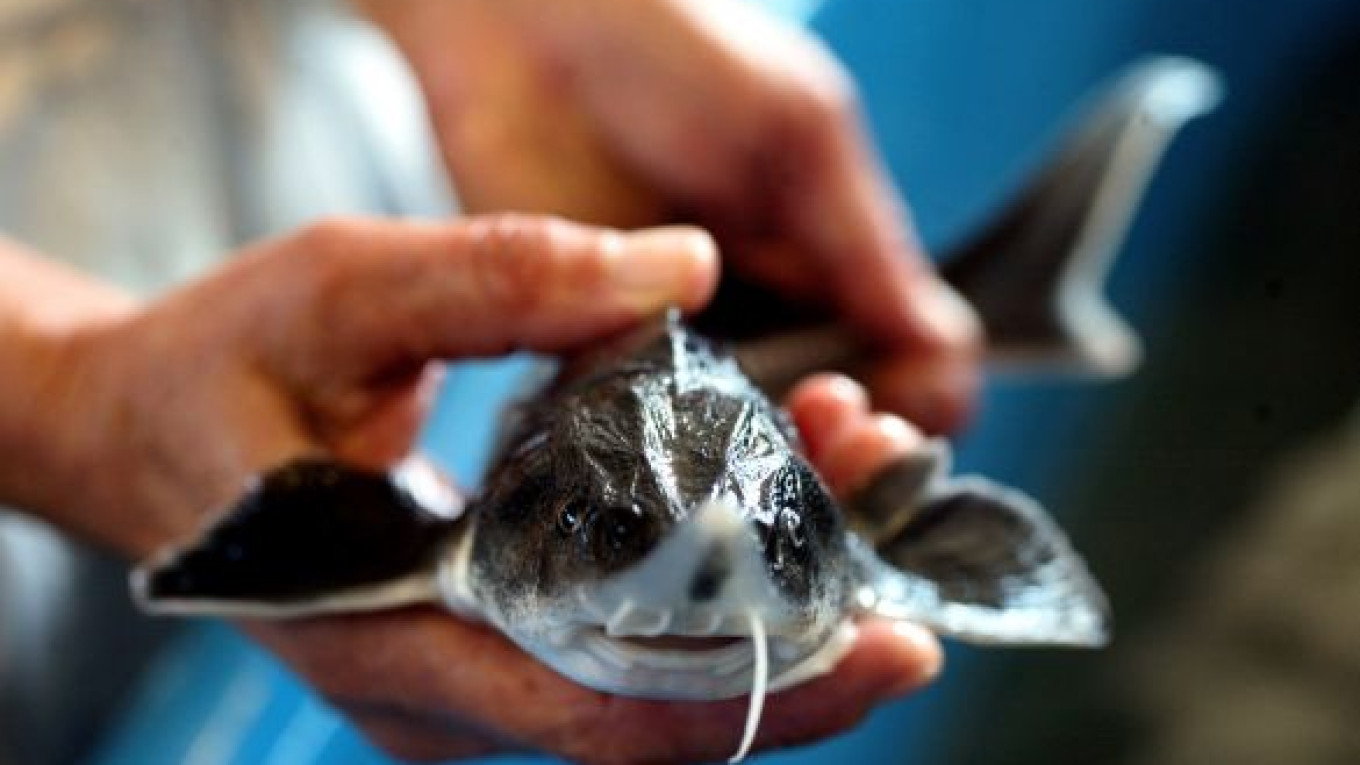GENEVA — Relentless consumer appetite for caviar is pushing sturgeon — such as the highly prized beluga — to the brink of extinction, a leading conservation group said Thursday.
The International Union for Conservation of Nature said it assessed 18 types of sturgeon for its latest Red List of endangered species and found that all of them were threatened. A complete ban on fishing for sturgeon in the Caspian Sea and elsewhere may be the only way to save the ancient species, the group said.
Beluga sturgeon is now listed as critically endangered for the first time, along with all other commercially harvested Caspian Sea species, the conservation group said.
"It's time to seriously consider ending fishing in the Caspian Sea," Phaedra Doukakis, an expert with the group and a researcher at New York's Stony Brook University, said in a statement.
Such a move would be a blow to the fishing industry in the Caspian region, which covers parts of Russia, Iran, Kazakhstan, Turkmenistan and Azerbaijan. Beluga caviar can fetch up to $5,000 a pound depending on taste and quality. Eggs and meat from other species are also considered a delicacy in many countries.
Three years ago, a UN panel lifted trade bans on beluga and two other types of caviar, arguing that Caspian countries had improved their conservation measures and should be allowed to carry out responsible sturgeon fishing.
Ellen Pikitch, executive director of the Institute for Ocean Conservation Science at Stony Brook, said the UN-sponsored conservation body CITES should now consider imposing a total ban on trade in sturgeon products when it next meets in two or three years.
Such a ban would need to last several decades to allow sturgeon stocks to recover, she said.
Evidence collected by scientists shows that measures to protect sturgeon have been insufficient in the face of historic overfishing, poaching and environmental damage, according to Kent Carpenter, the International Union for Conservation of Nature's director for global marine species assessment.
"This is alarming given their unique lineage and particular vulnerability," Carpenter said.
Sturgeon have existed for 250 million years, making them among the world's oldest surviving fish species. They can live for up to a century and take a long time to reach maturity.
"One ray of hope for these species is their ability to produce millions of eggs," said IUCN. "If proper protection can be put in place this reproductive capability may gradually replenish their populations."
The group said that other endangered sturgeon species apart from beluga include stellate, Russian, Persian and ship sturgeon.
Chinese paddlefish were among four sturgeon or related species now listed as critically endangered and possibly extinct, it said.
A Message from The Moscow Times:
Dear readers,
We are facing unprecedented challenges. Russia's Prosecutor General's Office has designated The Moscow Times as an "undesirable" organization, criminalizing our work and putting our staff at risk of prosecution. This follows our earlier unjust labeling as a "foreign agent."
These actions are direct attempts to silence independent journalism in Russia. The authorities claim our work "discredits the decisions of the Russian leadership." We see things differently: we strive to provide accurate, unbiased reporting on Russia.
We, the journalists of The Moscow Times, refuse to be silenced. But to continue our work, we need your help.
Your support, no matter how small, makes a world of difference. If you can, please support us monthly starting from just $2. It's quick to set up, and every contribution makes a significant impact.
By supporting The Moscow Times, you're defending open, independent journalism in the face of repression. Thank you for standing with us.
Remind me later.


